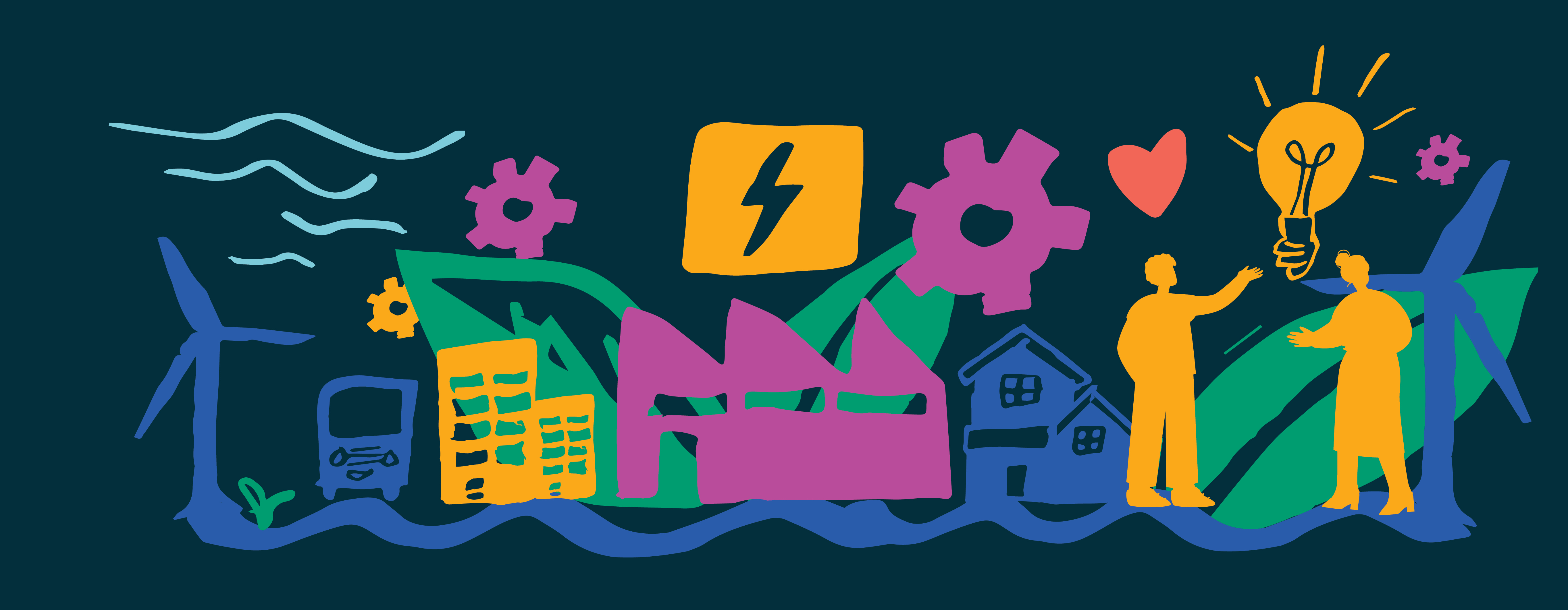Supporting people into employment improves economic and social wellbeing. This requires building the skills and knowledge of workers and businesses to maximise local strengths, opportunities for growth and the creation of quality, long-term local jobs.
An important first step is understanding and forecasting future workforce needs and opportunities and then growing the local workforce to take advantage of emerging job opportunities.
Gippsland Energy Skills Mapping Report
The Gippsland Energy Skills Mapping Report identifies current renewable energy projects in Gippsland and the skillsets required for people to gain employment in the new energy economy. Working with our training providers and partners - we use this evidence to understand the current skills available, to develop courses, training and pathways. We want as many people as possible to have the opportunity to engage in employment with this new energy economy.
Download the Gippsland Energy Skill Mapping Report.
Workforce Participation Report
A report by Federation University in partnership with the Latrobe Valley Authority shows Gippsland workforce participation is 51.4% and well below Victoria's average of 64.6%. Workforce participation is defined as people aged 16-64 currently employed or seeking employment.
Download the Gippsland Regional Labour Force Participation Report.
Energy Sector Workforce Analysis
Over the next decade the renewable energy sector in Gippsland is projected to grow to cater for the wide range of projects in development. To match this growth, we are undertaking the energy sector workforce analysis that aims to identify the skills, training and workforce needs to match the project pipeline.
TAFE Gippsland Leadership Series
The LVA is supporting TAFE Gippsland to deliver a dynamic and engaging Leadership series that is designed for existing, newly appointed and emerging managers/leaders in Gippsland.
For more information visit www.tafegippsland.edu.au/leadership_series
Gippsland’s Future Health and Community Services Workforce
Gippsland’s Future Health and Community Services Workforce report backs the Victorian Government’s investment to support the development of Allied Health courses in Gippsland.
Commissioned by the Latrobe Valley Authority in partnership with Latrobe Regional Hospital and Latrobe City Council, Swinburne University of Technology was engaged to deliver the report, which also provides a framework for action to support the sector’s growth until 2036.
The healthcare and social assistance sector in Gippsland employs over 18,000 people and is expected to grow significantly in the coming years in line with demographic changes.
Life Changing Careers in Health and Community Services
We partnered with Federation University to create a series of videos, profiling current students and graduates and their Health and Community Service career journeys. The videos feature both mature-age students and recent school-leavers, and cover a range of disciplines within the Health and Community Services sector.
Ladder Step Up Latrobe Valley
We are supporting young people in the Latrobe Valley by partnering with the AFL’s official charity organisation, Ladder.
Over 160 local young people have now been supported through the Ladder Step Up Latrobe Valley program.
For more information visit ladder.org.au
Broadening Horizons
Established in Gippsland, Broadening Horizons sees primary and secondary school students working in small groups, on a challenge provided by an industry partner. Over the course of the program the students design and develop possible solutions to present back to the industry partner and broader audience.
There are 21 schools and 1405 students participating in the program across Gippsland, as well as now being delivered in Warrnambool and Ballarat.
For more information visit broadeninghorizons.com.au
Possible Me Research Project
Possible Me is a research partnership with Federation University to understand what elements and frequency of world of work experiences inspire young people's purpose for learning.
This will help inform the kind of work experiences suitable at various ages, starting with early childhood learning to improve awareness of future careers.
Page last updated: 13 Sep 2023

